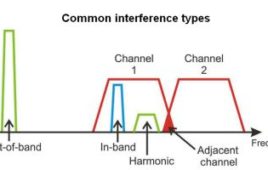The Competitive Carriers Association (CCA) on Thursday pushed the FCC to shoot down a request from Boeing to deploy a satellite system using millimeter wave spectrum earmarked for 5G.
In an application filed in June, Boeing asked the FCC to approve its plan to launch a low Earth orbit NGSO fixed satellite service (FSS) system that would use spectrum in the 37.5-42, 47.2-50.2, and 50.4-51.4 GHz range.
At the time, Boeing noted the Commission was exploring the use of that spectrum – known as V-Band – for 5G, but argued the ability to use more of these airwaves would “create a five gigahertz block of uplink spectrum that, paired with FSS downlink spectrum in the 37.5-42.5 GHz band, will enable satellite broadband service by very high data-rate broadband satellite systems that will be deployed in the near future.”
Boeing’s argument in favor of allowing faster satellite broadband speeds might carry some weight with the FCC, which yesterday released its sixth Measuring Broadband America report for fixed broadband. That study found the ratio of actual vs. advertised download speeds of satellite Internet service providers actually went down from last year’s results, likely due to “increased subscribership and consumer usage of these services.” The commission noted, “future proposed launches of more advanced satellites would likely reverse this trend.”
But CCA – which represents a slew of smaller U.S. wireless carriers, including T-Mobile and Sprint –urged the FCC to keep its promise to save those bands for 5G. The commission in July unanimously voted to open 3.85 GHz of licensed spectrum from 27.5-28.35 GHz and 37-40 GHz as well as 7 GHz of unlicensed spectrum from 64-71 GHz for next generation wireless services.
“The Commission has yet to resolve the technical challenges it foresees with this valuable spectrum, and it makes little sense for the FCC to prematurely act on Boeing’s request until the Spectrum Frontiers proceeding is settled,” CCA CEO Steven K. Berry said. “The FCC should deny Boeing’s request which would only further complicate the analysis of these bands and disadvantage competitive carriers and their consumers. This is a pure and simple ‘spectrum grab’ attempt that should be rejected.”
“Boeing should not be allowed to ‘cut in line’ and gain access to this important 5G spectrum when data use and demand on mobile networks continue to increase exponentially,” he concluded.
Filed Under: Wireless • 5G and more, Telecommunications (spectrums)




